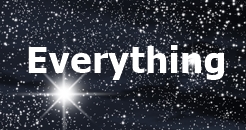 Business in the context of a God who has given it all
Business in the context of a God who has given it all
From a talk by David Urquhart, Bishop of Birmingham at a SALT Conference
In the church, we have a big picture in Psalm 24. "The earth is the Lord's, and all that is in it", or if you like, the fullness thereof, which is one of the translations there.
And then of course, in terms of confidence, we have Colossians 1:19. This extraordinary big vision focused in the person of Jesus Christ, "In Christ, all the fullness of God, was pleased to dwell, and through him to reconcile to himself all things, whether on earth or heaven, making peace by the blood of His cross".
So, for people of faith who are caught up in the call to be Christian disciples, there is this huge picture, the whole thing. There's this focus which is about saving a soul, or souls, or getting to heaven and it's a revelation that connects up with the original creation vision.
Our position as Christians in scripture, is that we are in these in-between times. It begins in the garden as you know, and it ends in a city. It begins in a garden and it gets spoiled. There's a muddle that we got into interpreting scripture over many centuries because Genesis 1:28 says that God's plan in this wonderful creation was to give human beings a particular role. And this role was translated as dominion which came to mean that we are in charge of it and it was for us. A sequence of misinterpretations which has got us into terrible, terrible trouble, in terms of what we've been given. A better sense would be stewardship.
So, we see in the garden a responsibility of human beings, and also a responsibility that is burdensome, because of sin. Secondly, in contrast, if you go to the end of book of Revelation, you get not the garden but a city. And you get, not a place where human beings are expected to be responsible, or even in charge. You get this extraordinary, glorious, visionary place, and where the leaves of the tree beside this wonderful river of water are for the healing of the nations.
You see why we are in between. We're in between because we've been given all this, it is spoiled, and it's burdensome. But our vision at the end is back at God, it's all God's. So that's exciting tension for us, but we need to keep the whole in perspective on the journey. It's all God's, and he's given us to deal with it.
So, what we notice next, is that God gives pivotal instructions to humanity. Jesus summarized these as love God, love your neighbour. Pivotal instructions for business people. Love God, the big picture, love your neighbour and of course this means loving the planet as well - lovingly, sustainable. If you have to get on with running a business today, keep those pivotal things in your mind from scripture - love God, love your neighbour.
Let's be encouraged, that these roots of ethical business, and Christian behaviour and human behaviour are being examined again in the public discourse.
Jesus, Paul and Peter in the New Testament, write very clearly, and speak very clearly about riches, wealth, the warnings and their uses. We have the warning of 1Timothy 6:10, the love of money is the root of all evil. Get your Bible right. Not money is the root of all evil, the love of money is the root of all evil. What about uses of riches? You've got a wonderful story in Luke 21:2 of the widow who puts in two coins into the treasure and Jesus extols her for giving sacrificially of what she has. Not the amount, it's the cost of the sacrifice.
Two parables to look at are the parables of the barns and the parables of the talents. They are really important for our understanding of the Bible and Jesus, and what we're about as wealth developers and as business people.
So first of all, the talents, which is Matthew 25:14-30. There is a very tough teaching of Jesus, which is three people with different proportions of giftings. The one who is condemned is the one who doesn't use it. This is really tough and unacceptable in today’s self-served culture. We would never do that to someone - take away the little they have because they've hid their talent and didn't use it. The reverse however is true - it is not acceptable to not use their talent. Risk is ok, and reward is ok.
Second one, the barns - Luke 12:16-20. And the lesson of that is that simply, Jesus never condemns wealth. What He condemns, is the use of that wealth in the wrong way. That very successful farmer is fine, but he prays to himself, and not to God. He said to himself, "Lord, what shall I do? I've got so much, I shall tear down my barns, and build greater". He wasn't even talking to God, he was talking to himself. So, have a look at that and just think. Am I trusting God? Am I looking outwards to those who are in greater need then me? Is my business in the context of a God who has given it all? A God who has everything but meanwhile, wants us to be those who love Him, love our neighbour and give generously.
Retweet about this article:
From a talk by David Urquhart, Bishop of Birmingha, 27/11/2019